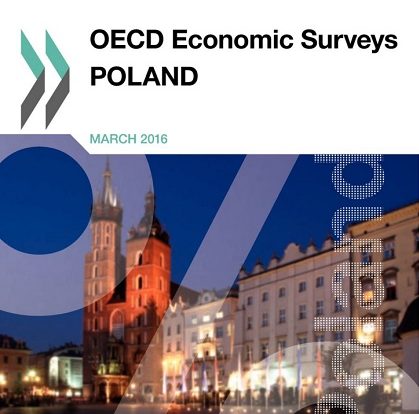OECD calls on Poland to introduce ‘cooling-off’ periods for senior officials

The OECD has called on Poland to introduce a ‘cooling-off’ period for senior civil servants leaving the public sector to reduce revolving-door opportunities.
The majority of developed countries have such periods in place in order to restrict public officials from leaving the public sector to lobbying or engage in official dealings, or interact with their former subordinates or colleagues in the public sector.
The length of the cooling-off period varies across countries – in Austria it is less than a year, whereas in Germany it can be up to five years, and in in Slovenia, the United Kingdom and the United States, the cooling-off period varies between public officials based on the seniority and the nature of the post.
In Poland, public officials are “not even temporarily restricted from lobbying and interacting with their former subordinates or colleagues when they leave the public sector unlike in most OECD countries,” the OECD Economic Survey of Poland 2016 states, adding that “the level of disclosure and public knowledge of the private interests of political advisors and senior civil servants [in Poland] is relatively low.”
The introduction of cooling-off periods in Poland is one of a range of measures suggested to address corruption risks and improve public procurement capabilities in Poland.
The report, published today, states that “management and supervisory board positions in the numerous state-controlled companies may be subject to potential conflicts of interest.”
Another proposed measure is the strengthening of whistle-blower protection and of the independence of the Central Anti-Corruption Bureau, which is responsible for verifying the declarations of private interests.
There is currently “no specific legislation concerning the protection of whistle-blowers apart from general provisions in the Labour Code on unfair dismissal, which in any case does not apply to those on civil law contracts,” the report says. “Therefore, fear of employer retaliation may discourage whistle-blowing.”
A first step, the survey says, “would be to rapidly implement the previous government’s 2014-19 anticorruption strategy that included developing awareness campaigns, revising public tender rules and strengthening the monitoring of state-owned enterprises.”
Strengthening public procurement capabilities, it says, “would improve investment quality and value for money.”
While Poland made substantial progress in achieving efficient infrastructure spending between 2007 and 2013, “red tape and a lack of competition still appeared to affect public procurement practices in 2014,” the survey says.
The survey, presented in Warsaw today, says that Polish economic growth remains solid and unemployment is decreasing, but further investments in infrastructure and skills will be essential to sustain a continuing improvement in living standards, environmental quality and well-being.
For up to date government news and international best practice follow us on Twitter @globegov
See also:
Germany announces $299bn infrastructure investment
UK government departments to face further cuts, chancellor reveals in budget
New coordinating unit to meet Greek migrant health challenge





















